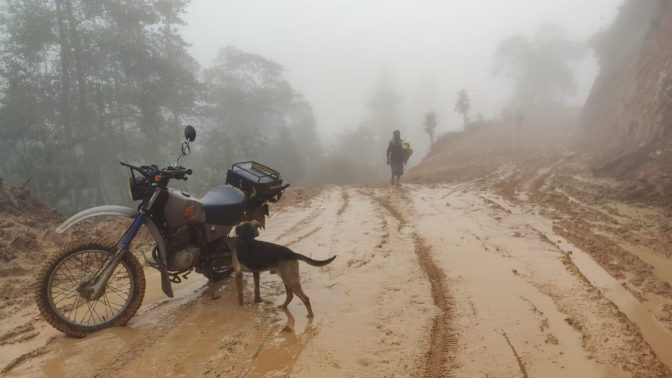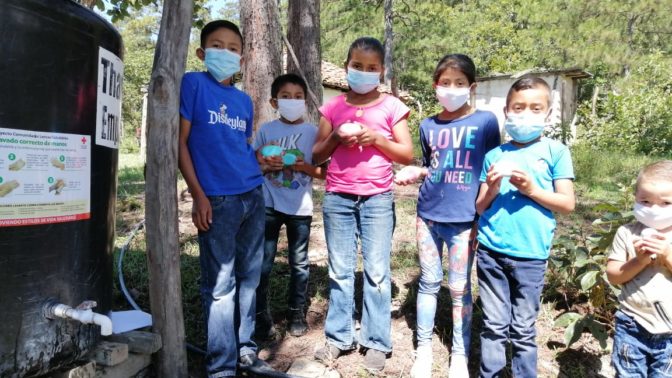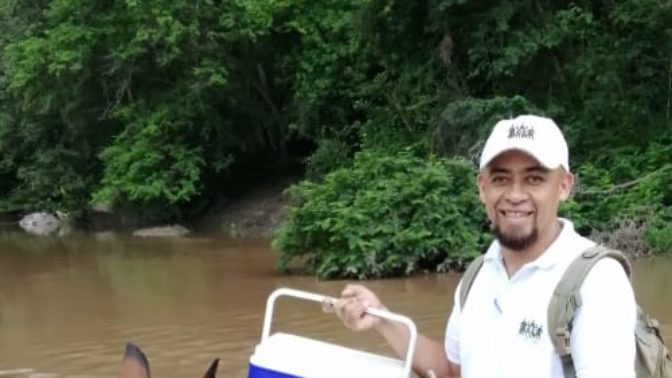COVID-19 success stories – a blog series: EOS International

In this blog series, we explore how some of our epNetwork members have dealt with/been dealing with the COVID-19 pandemic in their work and in their communities. Next in the series is EOS International.
Access to a reliable supply of safe drinking water is a fundamental human need. Now, faced with the COVID-19 global health emergency and two recent back-to-back devastating hurricanes in Central America, safe water is crucial to survival. The people we serve in Honduras and Nicaragua are navigating similar challenges as many of us while also struggling with the difficulties they faced before the pandemic: for many, the lack of access to safe water and hygiene and the lack of basic infrastructure to handle a health emergency.
Since the onset of the pandemic, there has been a growing need for our safe water solutions across Central America. We have adapted the way we work in the field under new, extraordinary conditions, and are working hard to meet the increased demand and to help slow the spread of the virus in already vulnerable rural communities.
Our team continues to work on the front lines in over 1,500 communities across Honduras and Nicaragua to ensure there is ongoing access to safe drinking water. We provide drinking water purification for communities, distribute chlorine tablets to treat harmful bacteria in water sources, and provide technical support, and education on health and hygiene to prevent the spread of COVID-19. Unfortunately, many of these communities lack the healthcare infrastructure needed to fight COVID-19, making safe water even more important to keep families safe from waterborne diseases and allow for proper hand washing and hygiene to stop the spread of the virus.
Furthermore, the devastating flooding and destruction that resulted from two back-to-back hurricanes that struck Central America have further amplified the great need for safe drinking water in the communities we serve. Now more than ever before, safe water saves lives.

Siemens Stiftung: In general, how have you and your team been able to manage the uncertainties and challenges that have come with the COVID-19 pandemic so far? Both personally and from a business angle.
EOS: When the global pandemic first hit Nicaragua and Honduras, it took us a month or so to figure out how we could operate. Due to the nature of our technical assistance and water quality work in rural communities, the Ministry of Health gave us critical health passes, allowing us to travel outside of the city lockdown to complete our work. We also got creative in our monitoring, and leveraging text messaging and video calls to provide remote assistance, take water tests, while maintaining communication with our rural communities. Having an established network of 1,500 rural communities prior to the pandemic, we saw an opportunity to inform these communities on coronavirus updates – especially early on when the transmission methods were still relatively unknown. After the first 4-6 weeks of the pandemic arriving, and the initial surprise had passed, the community demand for improvements in their water system increased significantly. Rural communities were expressing interest to rehabilitate older systems, and there was an increase in chlorine tablet distribution, which we attribute to the general awareness that was raised as a result of the global pandemic.

Siemens Stiftung: Have you been able to continue operating like you were prior to the pandemic? If so, could you elaborate on reasons for your steady success throughout this time? If not, what changes have you made in order to remain in operation?
EOS: Our operations slowed when the pandemic first arrived in Nicaragua and Honduras. We sent all of our staff to work from home. Working from home, for our staff, is not a common thing in Nicaragua or Honduras without in-home internet, accessible laptops, and power outages, and took some adjustments to make it work. After the initial surprise passed, and we had protocols in place to protect our staff and community members, we were able to resume operations including our community visits. The pandemic also gave us the opportunity to evaluate the value of making an in-person visit versus just making a remote call. Our team still knows the value of a face-to-face visit, but we got into the rhythm of only doing this, and the pandemic forced us to re-evaluate and leverage technology to help bridge the gap when possible.
As mentioned, approximately 8 months after pandemic arrived, our Nicaragua and Honduras were hit with back-to-back hurricanes, causing heavy rains that destroyed roads, bridges, and a lot of damage to rural drinking water systems. Again, our team had to postpone and travel to rural communities until the roads dried up, boulders and trees were removed, and they were again passable, delaying our travel by an additional 2-3 weeks. We fortunately were able to fall back on the virtual communications that we leveraged at the beginning of the pandemic.
Throughout all that 2020 threw at us, as an organization, we are fortunate to be in a sector that was critical, allowing us to maintain and even expand our operations. I am really proud of our team on the front lines, who have had to adjust and re-adjust their plans to continue operating and get through all the challenges we saw in 2020.
Siemens Stiftung: Do you expect there to be any long-term changes for your social business because of the pandemic? If so/not, how do you see it benefiting your work in the long run?
EOS: I feel as though the pandemic has brought an increased awareness around public health and basic needs such as safe drinking water. This awareness has influenced rural communities to take additional action to ensure their water is safe to drink.
More from EOS in 2020 – posts/updates:
https://eosinternational.org/a-message-from-our-ceo-wes-meier/
https://eosinternational.org/june-update-from-the-field/